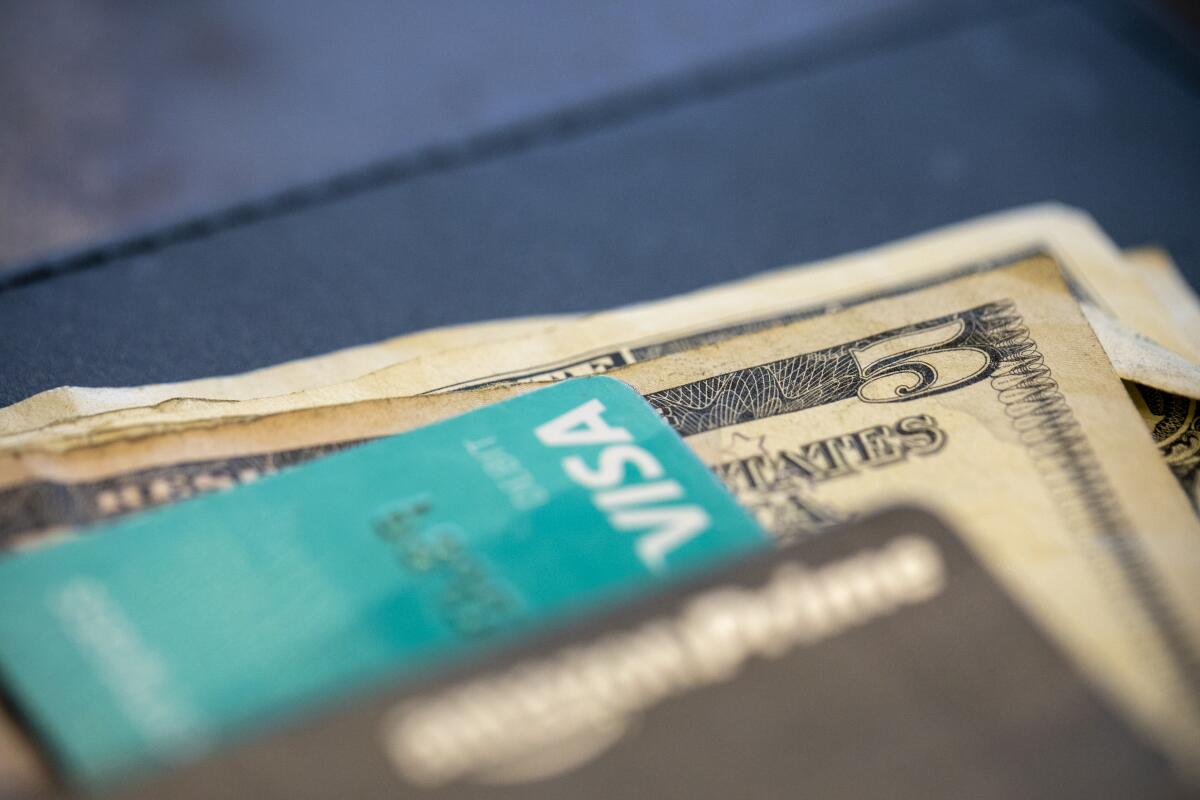How to build financial resilience to help you ride out tough times

Financial resilience provides a safety net that you might rarely use â but when you need it, youâll be glad you have it.
âA household is financially resilient if they are prepared to encounter unexpected financial shocks,â said Emerson Sprick, associate director of economic policy at the Bipartisan Policy Center, a think tank in Washington, D.C.
Shocks could include costs such as a surprise medical bill or home repairs or lost income from a layoff. They tend to be âunpredictable in their timing, but we generally know they will happen throughout our lives,â Sprick added.
Given that weâre all likely to face financial shocks at some point, here are some ways to improve your financial resilience.
Lock down your cash flow
âSometimes, we go out and spend without thinking,â said Troy Anthony Anderson, who develops financial education extension programs for the University of Maryland in Calvert County, Md. Thatâs why he recommends writing down expenses to track exactly where money is going as a first step toward figuring out what to cut, such as going out to eat or to the movies.
The 50/30/20 budget was popularized by Sen. Elizabeth Warren and her daughter Amelia Warren Tyagi in their book, âAll Your Worth: The Ultimate Lifetime Money Plan.â
Anderson suggested planning for the entire month so you donât overspend each time you get paid. âAsk yourself, âDo I really need to eat like a king or queen when I get my paycheck?â The direct deposit clears and you go to Texas Roadhouse or Outback, but then the following week [you] have no money and have to make peanut butter and jelly,â he said.
To stay on track, Anderson keeps a limited amount of cash in his wallet for discretionary expenses and writes down what it can be used for on a sticky note that stays with the cash.
Create a savings reserve
Although building up the traditionally recommended three to six monthsâ worth of expenses is out of reach for many people, itâs worth striving for some savings, said Kate Bulger, vice president of business development for the nonprofit financial counseling and educational organization Money Management International.
âThe more we can save, the better, and having that savings gives people the runway they needâ to get through a difficult time, she said. Keeping those savings in a high-yield savings account can allow the money to grow over time while staying safe.
In addition, retirement savings can bolster long-term financial resilience, Sprick said. Many workers can leverage employer matches and tax-advantaged accounts such as 401(k)s to help build savings for retirement. Contributing even a small amount each pay period can lead to significant savings over years of working, especially when the earnings are compounding.
Itâs understandable to worry about medical bills after a cancer diagnosis or other serious health issue. There is help available, if you know where to look.
Defend your credit
Keeping credit card balances as low as possible can leave those credit lines available for emergencies, Bulger said.
âCredit cards are a great tool to use for short-lasting hard times. Having room on your credit cards lets you use them that way,â she said. Then, paying off the balance as soon as you can helps keep interest to a minimum.
Otherwise, Sprick warned that itâs easy to get caught up in âa pernicious cycle of debt and poverty.â For example, if you have to put a $300 car repair bill on a credit card that charges 20% interest, youâll be charged about $5 in interest per billing cycle until you pay it down.
âEspecially right now, with interest rates as high as they are, itâs easy to get caught in a cycle of debt where you never get out,â Sprick said.
When one partner keeps money secrets or withholds financial information from the other partner, it might be a sign of abuse.
Talk through your financial priorities
Discussing with family members how you would handle a financial shock before one actually happens can help you prepare for that moment, Bulger said. She suggested the following prompts:
- What are the most important things in our financial life?
- What are we saving for?
- What expenses will we cut out first if we need to?
âIf you have that conversation ahead of time, itâs easier to make the adjustments,â Bulger said.
At the same time, talking through financial challenges with family and friends can help you feel emotionally supported.
âFinancial hardships can be incredibly lonely even though we know many people are going through financial strain,â Bulger said.
Have you been handed a pink slip? Job hunts are stressful and time-consuming, and you want to be smart with your money. Hereâs what to do next.
Lean on your community
Communities often have food banks, government programs and school-based aid that can help people going through a difficult period, Bulger said. She also suggested turning to resources such as a nonprofit financial counselor or online budgeting how-to videos to help support you through changes in your saving and spending habits.
However you seek support, try not to dwell on setbacks. Daniel Milan, managing partner at Cornerstone Financial Services in Southfield, Mich., suggested that just as with the stock market, it can help to focus on whatâs down the road instead of whatâs right in front of you.
âWe canât control the day to day, but if you have a plan over the long term, history has shown us that your average over time will work out,â he said.
Sometimes, you just have to get over the dip.
Palmer writes for personal finance website NerdWallet.
More to Read
Inside the business of entertainment
The Wide Shot brings you news, analysis and insights on everything from streaming wars to production â and what it all means for the future.
You may occasionally receive promotional content from the Los Angeles Times.














